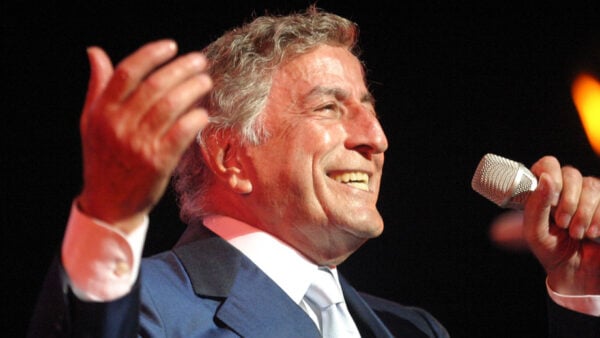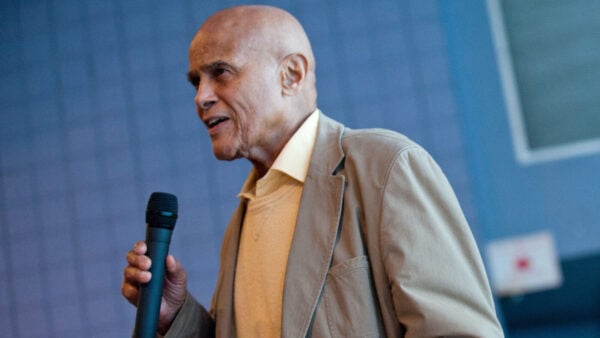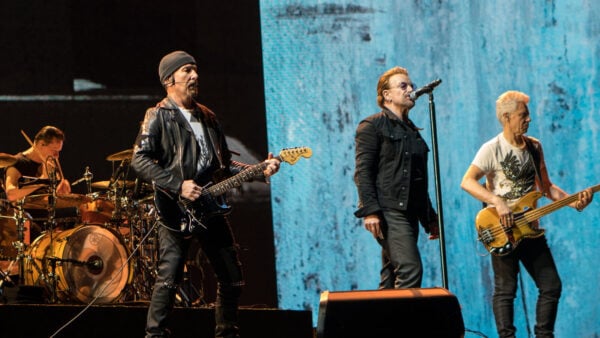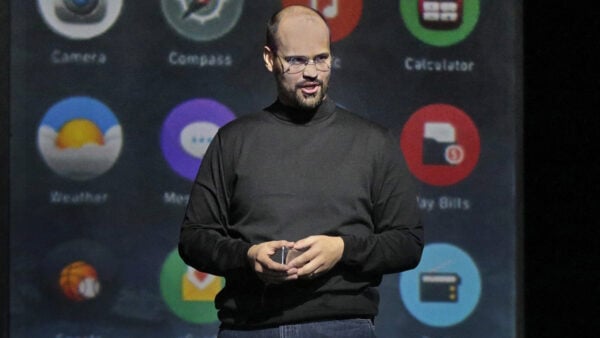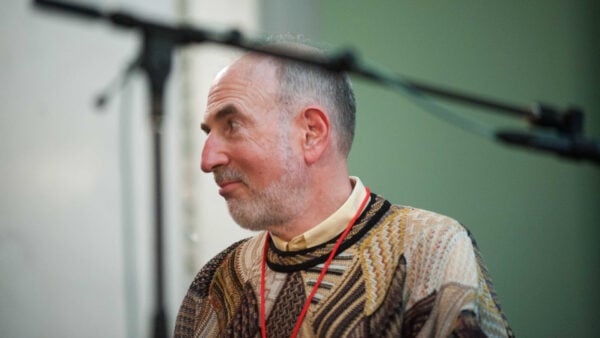
Tommy Prine at The Basement (Photo: Rett Rogers courtesy IVPR)
NASHVILLE, Tenn. (AP) — Standing before a packed house at The Basement, one of Nashville’s most intimate music venues, Tommy Prine talked about the death of his father.
“It sucks to lose a parent at any age — in my case when he was the world’s greatest songwriter,” he said during a recent sold-out show.
Prine’s father, singer-songwriter John Prine, died of complications from the coronavirus in April 2020 at the age of 73. His death prompted a surge of worldwide mourning remarkable even for a time in which grief had become an everyday thing.
The heartbreak was especially acute in the music world. John Prine’s kindness to aspiring musicians only added to the connections he made with his music. Many channeled their grief into tribute songs, straining to process the unthinkable.
It turns out something similar was happening in Prine’s own family.
Last year, Tommy Prine released “Ships in the Harbor,” a song as moving and vulnerable as anything written by anyone about Prine’s father. It doesn’t run from what he lost but pushes back against the impulse to curl up in the fetal position. It comes as close as any song out there to putting the colossal weight of grief caused by the pandemic in its proper place.
Now 27, Tommy Prine is poised to put out an entire album of songs about loss, love and and growing up. “This Far South,” set for release on June 23, is brave not only in the head-on way it deals with his father’s death, but in how the son of a legend confronts the inevitable questions that come with practicing the same craft.
In an undertaking laced with risk, Tommy Prine neither turns away nor tries too hard. He’s made an album that’s all his own and it’s mesmerizing.
“Honestly, even if my Dad wasn’t who he was, I feel like I would’ve made the same record,” Prine said in an interview with The Associated Press. “I didn’t include these songs because of who he is, and I also didn’t shy away from them because of who he is.”
Writing songs helped Prine sort through all he had lost. The intimacy of that journey makes his father’s legendary status feel almost like a distraction.
“I’m Tommy Prine and I lost my Dad in the pandemic, and that’s going to be a focal point of what I’m trying to get across,” he explained. “And like, I understand that it was a pretty public thing, and most people are going to have that context — and I think it will actually serve the record that they have that context — but you know, I don’t think that they need to.
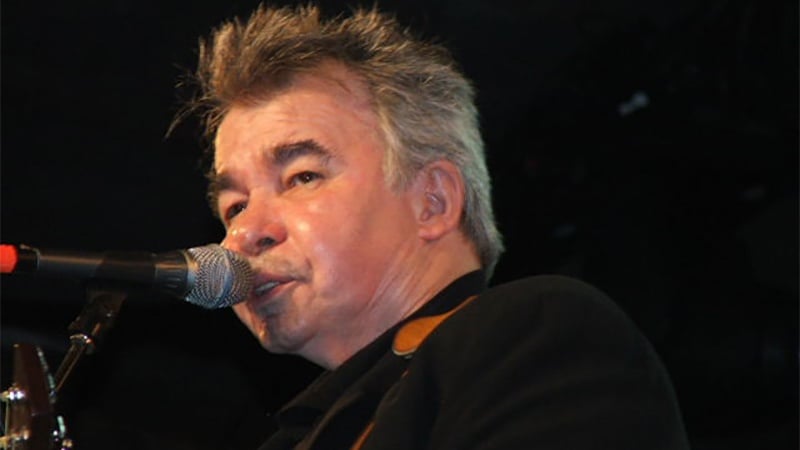
John Prine (Photo: Ron Baker, CC BY 3.0, via Wikimedia Commons)
“I think they can just listen to it from the perspective of a young man who lost his father too soon.”
The occasional references are vivid but never cloying: The card games they won’t play, the conversations they won’t have. In a beautiful song called “By the Way,” he touches on the unique experience of hearing his father’s voice in unexpected moments.
“I don’t want to talk about the day you slipped away,” Prine sings. “It’s still hard to hear your voice in the songs that we used to sing.”
But Prine shares other vulnerabilities, and the influences of people who aren’t his father figure in as much or even more. The hand of co-producer Ruston Kelly, for example, can be heard in the album’s anthemic flourishes and confessional lyrics. A song called “Reach the Sun” starts with a late-night panic attack but ultimately soars in a style reminiscent of Kelly’s best work, including the excellent album he just released.
Kelly joined Prine on stage at The Basement, and in an interview afterward mentioned another influence on both of them, Sufjan Stevens. Kelly had steered Prine toward Stevens’ “Carrie & Lowell” album, and Prine heard a sound suited to the wistful urgency he wanted to convey.
Prine said he never set out to be a singer-songwriter — “It was probably the last thing I wanted to do for the rest of my life” — but it proved to be a “saving grace” when he confronted the challenge of losing his father.
Given the shadow that looms over anyone named Prine who dares to try his hand at creating original music, listeners would do well to imagine how they would respond if they didn’t know this album came from the son of a legend. It’s possible, maybe even likely, that Prine’s music will find a whole new audience, on social media and in other ways music passes from hand to hand these days. Some listeners his age and younger may never have heard of his father, but these songs will make connections on their own.
But anyone who listens will hear the promise of an artist following his heart with uncommon courage. John Prine fans might hear something familiar in the album’s disarming honesty, but they’d also encounter a new voice delivering music that crackles with intensity.
Prine says he doesn’t think about the legacy question much, though it has crossed his mind. But that’s just one more thing that he has put in its proper place.
“I’m just making the music that I want to make, and music that is a representation of who I am as a person,” he said. “I had a completely different set of experiences growing up than my father had, and I have my own story to tell.”
Scott Stroud for the Associated Press

